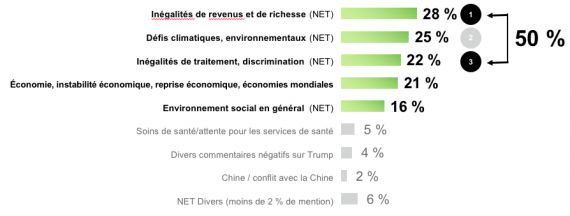Cancel culture is “the practice or tendency to engage in mass cancellation as a means of expressing disapproval and exerting social pressure”. (Photo: 123RF)
–
ECONOMIC ANALYSIS – Originating in the United States, “cancel culture” first appeared in Canada in the cultural industry and in universities. And as with our American neighbors, it will extend more and more to companies – especially large ones – which will have to find the appropriate response to this socio-cultural activism.
According to the Merriam-Webster online dictionary, cancel culture is “the practice or tendency to engage in mass cancellation as a means of expressing disapproval and exerting social pressure.”
Most of the time, this social disapproval is a reaction to a person’s behavior, decision or opinion, not to mention policies or strategies put forward by organizations, including private companies.
In Quebec, the SLAV show is a famous case of this cancel culture.
In July 2018, the management of the Montreal International Jazz Festival had canceled Betty Bonifassi’s show, directed by Robert Lepage, in the wake of the many protests it had provoked.
Protesters had criticized the cast for making little room for members of the black community, while the show dealt precisely with black slavery.
Some had seen a “Racist appropriation”.
Crisis at the University of Ottawa
Another famous case is that of a professor at the University of Ottawa, Verushka Lieutenant-Duval, who was suspended from her post last fall for uttering the word that begins in “N” in a letter. academic framework.
Although the teacher apologized for using the word, an outraged student posted a tweet containing a screenshot of the apology as well as Verushka Lieutenant-Duval’s name and contact details.
Cancel culture is far from being limited to the cultural industry and education. In the United States, companies must take this phenomenon seriously, the magazine insisted in September. Forbes.
Experts read the same thing for the business community in Canada.
“Our approach is to say: prepare yourself before it happens to you”, André Pratte explained to me this week. Senior Director of Navigator, a Canadian firm specializing in issue management and strategic communications, and former senator and columnist at Press.
In recent months, the Navigator team – whose CEO is Brian Gallant, former Premier of New Brunswick from 2014 to 2018 – has made presentations to business associations in Canada on national and international issues of concern to Canadians. , to which companies will have to find an answer.
However, two issues are of the utmost concern to citizens: inequalities in income and wealth as well as unequal treatment and discrimination.

Source: Navigator
–
Also, companies that have practices and policies that go against these concerns are more likely to be pressured in the public arena, believes André Pratte.
In addition, for an organization, it is not enough to have a speech denouncing inequalities or advocating diversity. It is also necessary that the practices of the company embody these values.
In short, the boots must follow the lips.
Nothing is worse than a company which denounces inequalities while offering poverty wages to its employees. Or a company that publicly advocates diversity, but which employs only women or men, who are also only white.
Attention au «Woke-Washing»
In an analysis published in July, the Harvard Business Review explained that organizations that have this attitude – that do “Woke-Washing”, to use the expression of this publication – risk suffering from this lack of consistency and authenticity.
Because cancel culture is also part of the “woke movement”, this state of mind in the face of injustices suffered by minorities, especially racialized.
This left movement divides society, in Quebec as elsewhere in North America and Europe.
Some see it as a vanguard of progressivism which denounces injustices, inequalities and discrimination, in addition to giving voice to racialized minorities who were not heard before.
Others, on the other hand, see it as a radicalism which, in the name of social and racial justice, imposes a climate of self-censorship comparable to the worst abuses of the Marxist far left of the 1960s and 1970s.
The truth is undoubtedly halfway in the minds of the vast majority of moderate citizens.
Yes to social changes because mentalities and values evolve and must evolve, but no to an unjustified clean slate and an exaggerated social deconstruction.
Moreover, companies are not obliged to bow to all the social pressures of civil society and to cancel culture.
However, there may be a price to pay for staying on the sidelines. And organizations that want to be in tune with society will have to do so with consistency and authenticity.
– .


